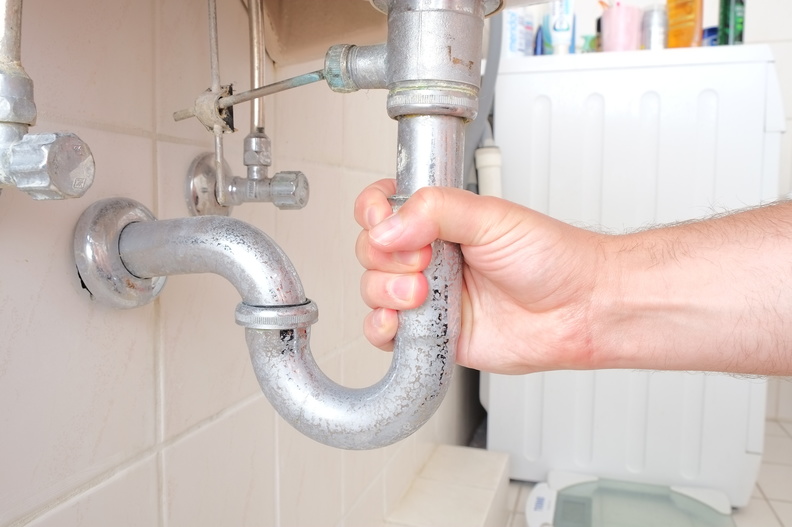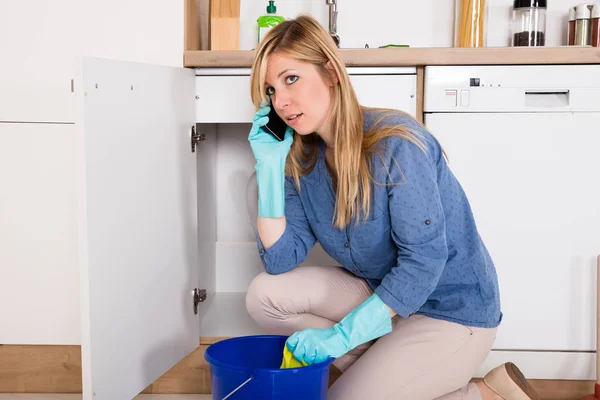Right here in the next paragraphs you can get more great guidance on the subject of What to Do While Waiting for an Emergency Plumber.

Pipes emergencies can strike any time, causing tension and possible damage to your home. Whether it's a burst pipeline, a blocked drainpipe, or a leaking faucet, recognizing how to take care of the situation up until a professional plumbing professional shows up can conserve you from additional difficulties. This short article provides necessary emergency pipes tips to assist you mitigate damages and regain control throughout a pipes dilemma.
Switch off the Supply Of Water
The very first step in any plumbing emergency situation is to shut off the water system. For local problems, such as a dripping faucet or bathroom, switch off the valve near the component. In the case of a major leakage or burst pipe, situate your home's main water shut-off valve and transform it off instantly. Understanding the area of these valves in advance can conserve valuable time during an emergency situation.
Address Small Leaks with Momentary Solutions
Small leaks can promptly become considerable troubles if left unchecked. Use these short-term repairs till professional assistance shows up:
- Pipeline Tape or Epoxy Putty: Use waterproof tape or epoxy putty to temporarily seal the leakage.
- Rubber and Clamp Approach: Wrap a piece of rubber or an old inner tube around the leakage and safeguard it with a tube clamp or duct tape.
- Buckets or Towels: Location containers under the leakage to have water and prevent damage to flooring or furnishings.
- While these solutions aren't irreversible, they can help minimize water loss and damage.
Unclog Drains Safely
A blocked drainpipe can be a discouraging and untidy concern. Below's exactly how to tackle it: - Utilize a Plunger: For sinks or commodes, a plunger can often remove small obstructions. Ensure you make use of the proper sort of bettor for the component.
- Hot Water and Dish Soap: For grease-related obstructions, put a blend of warm water and meal soap down the tubes to break up the grease.
- Avoid Chemical Drain Cleaners: While tempting, chemical cleaners can cause more harm than good, specifically to older pipelines.
- If these approaches do not function, prevent utilizing extreme force, as it may worsen the blockage.
Handle Overflowing Toilets
An overruning toilet can cause immediate disorder. Below's what you must do: - Quit the Water Flow: Remove the tank lid and weigh down on the flapper shutoff to quit water from going into the bowl. Turn off the water to the commode if needed.
- Dive Carefully: Use a commode bettor to remove the obstruction, but stay clear of hostile plunging, which can trigger splashing or further damages.
- Consist of the Spill: Use towels or a mop to tidy up water swiftly to avoid flooring damages.
Turn off Your Water Heater
In certain emergency situations, such as a ruptured pipe, it's important to shut off your hot water heater. This protects against overheating or damage to the device when water quits flowing. Switch off the power supply to the hot water heater (electric or gas) and allow it cool down to stay clear of prospective hazards.
Momentarily Stop a Burst Pipe
A burst pipeline can result in substantial water damages in minutes. To minimize the problem:
- Clamp or Cover the Pipeline: Use a pipeline clamp, rubber, or duct tape as a short-lived seal.
- Draw Away Water Flow: Ideally, divert the water right into a container or container to restrict damage to bordering areas.
- Maintain the Area Dry: Usage towels or a wet/dry vacuum to get rid of standing water.
- Call a professional plumbing professional promptly to attend to the trouble permanently.
Deal With Frozen Water Lines Carefully
In chillier environments, frozen pipes are a typical emergency situation. If you suspect an icy pipeline: - Switch off the Water: Shut off the main supply of water to avoid a ruptured pipeline.
- Defrost Gradually: Make use of a hairdryer, heating pad, or warm towels to thaw the pipe slowly. Prevent open fires or severe warmth, as these can harm the pipeline.
- Inspect for Leaks: Once the pipe is thawed, check for fractures or leaks before turning the water back on.
Stop More Damages
Taking fast activity to decrease damages can conserve you money and time in the future. Right here's exactly how:
- Relocate Valuables: Get rid of furnishings, electronic devices, and various other products from the afflicted area.
- Use Sandbags: For flooding scenarios, place sandbags around the area to redirect water.
- Shut Off Electrical power: If water has reached electrical outlets or appliances, switch off the electricity to stop shocks or fires.
. Have an Emergency Situation Pipes Package
Prepare a fundamental pipes emergency situation package to handle minor problems successfully. Your package needs to include:
- Adjustable wrench
- Plumbing's tape
- Pipe clamps
- Towels and rags
- A bettor
- Epoxy putty
- Pail.
- Having these devices available can make a significant difference in your capacity to handle emergencies.
Know When to Call a Professional.
While quick fixes can help momentarily, particular pipes concerns need immediate professional focus. Call a plumbing professional if:. - A ruptured pipe causes considerable flooding.
- Drains or bathrooms remain clogged despite your initiatives.
- You see relentless leaks or water pressure issues.
- Your hot water heater is dripping or malfunctioning.
- Immediately getting in touch with a professional ensures the issue is resolved appropriately and protects against additional problems.
Verdict.
Pipes emergency situations can be frustrating, however with the appropriate expertise and devices, you can take care of the scenario successfully up until assistance arrives. By turning off the water supply, resolving tiny leakages, and making use of momentary fixes, you can minimize damages and keep your home safe. Bear in mind, these ideas are short-term solutions; constantly consult an accredited plumbing technician to manage the source of the problem. Prep work and fast thinking are your best allies in any kind of pipes emergency.
8 Helpful Tips for Managing Plumbing Emergencies at Home
If your plumbing system hasn’t failed once, wait for it because almost everyone has a story to tell. Sometimes, it could be simple emergencies such as a leaking pipe, a blocked cistern, or even a big burst pipe. In situations like this, you need to have some handy tips to save you some money and from possible damages.
Take care of minor issues early.
Sometimes, you could have avoided an emergency by taking proactive measures while it was still early. Some major plumbing emergencies can be a result of an ignored minor issue. We recommend that you have items like plumbing tapes and other related items. A plumbing tape can allow you to manage minor leaks before the plumber arrives.
Cut off the water supply.
This tip is essential in almost any type of leakage problem. For problems like minor leakages in the toilet or kitchen, turn off the supply that takes water to the affected pipes. If the leakage is a major pipe, you must shut off the supply valve to the entire building. This will help you avoid flooding your home and neighbors if you share a flat.
Know your plumbing system
Folks typically move into a new apartment without understanding the water supply around the building. This can prove disastrous if a water emergency arises and the plumber is far away. The previous tip will prove useless if you don’t practice this one. More importantly, know where your water shut-off valve is located – you’ll need that knowledge to prevent potential home floods.
Have some common handy tools
There are lots of plumbing emergencies that you can handle without hiring a plumber. That’s why you must keep some tools available always. Some tools that you can use to fix simple plumbing emergencies easily include plumbing tapes, screwdrivers, thread seal tapes, plungers, pliers, tape measures, and rubber gloves.
Insulate your pipes from cold
You’ll save yourself from many plumbing expenses if you protect your water pipes from the cold. This is because of the harmful effects that cold weather can have on your pipes. During winter, your pipes can burst from being overly expected to freezing temperatures. So, make sure insulators are there to keep the pipes working correctly.
Avoid practices that will clog your toilet.
Many people indulge in practices that can damage the plumbing system of the entire building. One of these is when they use their toilet to dispose-off garbage. They flush all kinds of things, such as paper towels, bandages, hairs, female sanitary products, etc., down the toilet. This will block your toilet in the long run, incurring unnecessary expenditures. Dump such waste in the trash instead.
Check your dials regularly.
Sometimes, there could be leakages in your home without noticing them in time. So, constantly monitor your water meter dial. If the dial is reading when there is nobody using water, this is an indicator that there is leaking. Check for leaks immediately. Call a plumber as soon as possible if you can’t find any.
https://www.constructionplacements.com/8-helpful-tips-for-managing-plumbing-emergencies-at-home/

We had been brought to that editorial on Expert Tips for Managing a Plumbing Emergency Until Help Arrives through an associate on another web property. Sharing is good. One never knows, you might be doing someone a favor. Thanks so much for your time invested reading it.
Appointment
Comments on “Critical Fixes: How to Until A Plumber Arrives”